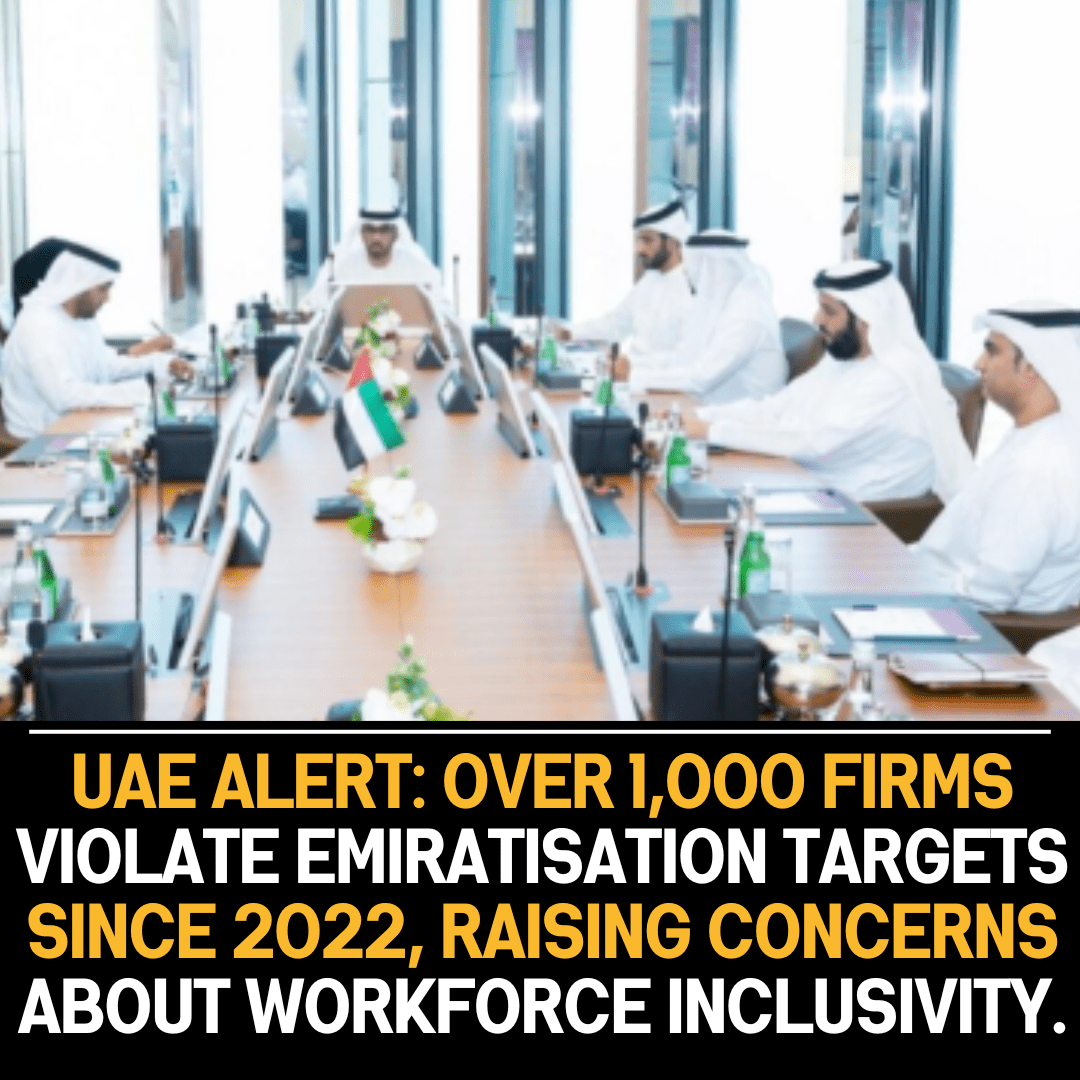In a concerning revelation, it has come to light that nearly 1,000 companies in the United Arab Emirates (UAE) have violated Emiratisation targets since the year 2022. Emiratisation, a key policy initiative in the UAE, aims to promote the employment of Emirati nationals in the workforce, emphasizing their active participation and contribution to the country’s economic development.
The violation of Emiratisation targets by a significant number of companies raises questions about the effectiveness of existing policies and the commitment of businesses to align with national workforce goals. Emiratisation is a crucial aspect of the UAE’s vision for sustainable economic growth, as it seeks to empower and enhance the skills of its citizens while reducing reliance on expatriate labor.
The reported violations suggest a need for a more robust monitoring and enforcement mechanism to ensure that companies adhere to Emiratisation requirements. The violations may range from insufficient hiring of Emirati nationals to failure in meeting the prescribed quotas for Emirati employees in various sectors.
The UAE government has consistently emphasized the importance of Emiratisation as a strategic priority, recognizing that a skilled and empowered local workforce is essential for the nation’s long-term prosperity. The reported violations underscore the challenges in achieving this objective and the necessity for a comprehensive and proactive approach.
Addressing the issue requires collaboration between the public and private sectors to identify and rectify the root causes of non-compliance. This may involve reassessing policies, providing incentives for companies that actively support Emiratisation, and implementing stricter penalties for those failing to meet the prescribed targets.
Companies play a pivotal role in driving Emiratisation efforts, and fostering a culture of corporate responsibility is crucial for the success of these initiatives. Government agencies may consider engaging in dialogue with businesses to understand the challenges they face in meeting Emiratisation targets and working collaboratively to find effective solutions.
Additionally, investing in education and skills development programs for Emirati nationals is fundamental to enhancing their employability. By aligning educational curricula with the evolving needs of the job market, the UAE can ensure that its citizens are equipped with the skills required for various industries, making them more attractive to employers.
The reported violations serve as a wake-up call for all stakeholders to reevaluate their commitment to Emiratisation and to actively contribute to the nation’s vision for a diversified and sustainable economy. It is essential to view this challenge as an opportunity for growth and development, where the private and public sectors collaborate to create an inclusive workforce that benefits both individuals and the broader economy.
In conclusion, the disclosure of nearly 1,000 companies violating Emiratisation targets in the UAE since 2022 highlights the need for a comprehensive and proactive approach to address the challenges hindering the successful implementation of this crucial policy. Through collaboration, dialogue, and strategic interventions, the UAE can overcome these hurdles and move closer to realizing its vision of a thriving and Emirati-centric workforce.









